New search Hide text from Guidelines
J ANTIINFECTIVES FOR SYSTEMIC USEAntiinfectives are also classified in the following groups:
A01AB Antiinfectives and antiseptics for local oral treatment
A02BD Combinations for eradication of Helicobacter pylori
A07A Intestinal antiinfectives
D01 Antifungals for dermatological use
D06 Antibiotics and chemotherapeutics for dermatological use
D07C Corticosteroids, combinations with antibiotics
D09AA Ointment dressings with antiinfectives
D10AF Antiinfectives for treatment of acne
G01 Gynecological antiinfectives and antiseptics
P Antiparasitic products, insecticides and repellents
R02AB Antibiotics
S01/
S02/
S03 Eye and ear preparations with antiinfectives
Even systemically administered antibacterials and antimycotics may be classified in other groups if their target is exclusively local, e.g. the skin - D01 - Antifungals for dermatological use.
Inhaled antiinfectives are classified in J.
| The DDDs for the antiinfectives are as a main rule based on the use in infections of moderate severity. However, some antiinfectives are only used in severe infections and their DDDs are assigned accordingly. The DDDs assigned are based on daily treatment. The duration of the treatment periods is not taken into consideration. For antiinfectives given in a high initially starting dose followed by a lower daily "maintenance" dose, the DDDs are based on the "maintenance" dose if the total duration of the treat-ment course is more than one week. If, however, the treatment course is 7 days or less, the DDDs are assigned according to the average daily dose i.e. the total course dose divided by the number of treatment days (e.g azithromycin). |
J04 ANTIMYCOBACTERIALS
This group comprises drugs mainly used for the treatment of tuberculosis or lepra. However, streptomycins are classified in J01G - Aminoglycoside antibacterials. Streptomycin in combination with antimycobacterials are classified in J04AM.
J04A DRUGS FOR TREATMENT OF TUBERCULOSIS
| The DDDs are based on combination therapy in the treatment of tuberculosis. DDDs for combination products see atcddd.fhi.no. |
J04AA Aminosalicylic acid and derivatives
Calcium aluminoparaaminosalicylate is classified together with calcium aminosalicylate in J04AA03.
J04AB Antibiotics
This group comprises antibiotics specifically used in tuberculosis, except streptomycin - see comment under J04AM. Other antibiotics, see J01 -Antibacterials for systemic use.
| The DDD for rifapentine is based on the first 6 months treatment period, including both the initial phase and the continuous phase. |
J04AC Hydrazides
Combinations of isoniazid and rifampicin or other tuberculostatics are classified in J04AM.
Combinations of isoniazid with iron or vitamins such as pyridoxine are classified in J04AC51.
J04AD Thiocarbamide derivatives
J04AK Other drugs for treatment of tuberculosis
At each 5th level vitamins such as pyridoxine are allowed.
J04AM Combinations of drugs for treatment of tuberculosis
Combinations of drugs classified in J04AA - J04AK are classified in this group (e. g. isoniazid + rifampicin).
Combinations of antimycobacterials and antibacterials for systemic use (J01) are classified here.
At each 5th level vitamins such as pyridoxine are allowed.
Last updated: 2026-01-20

